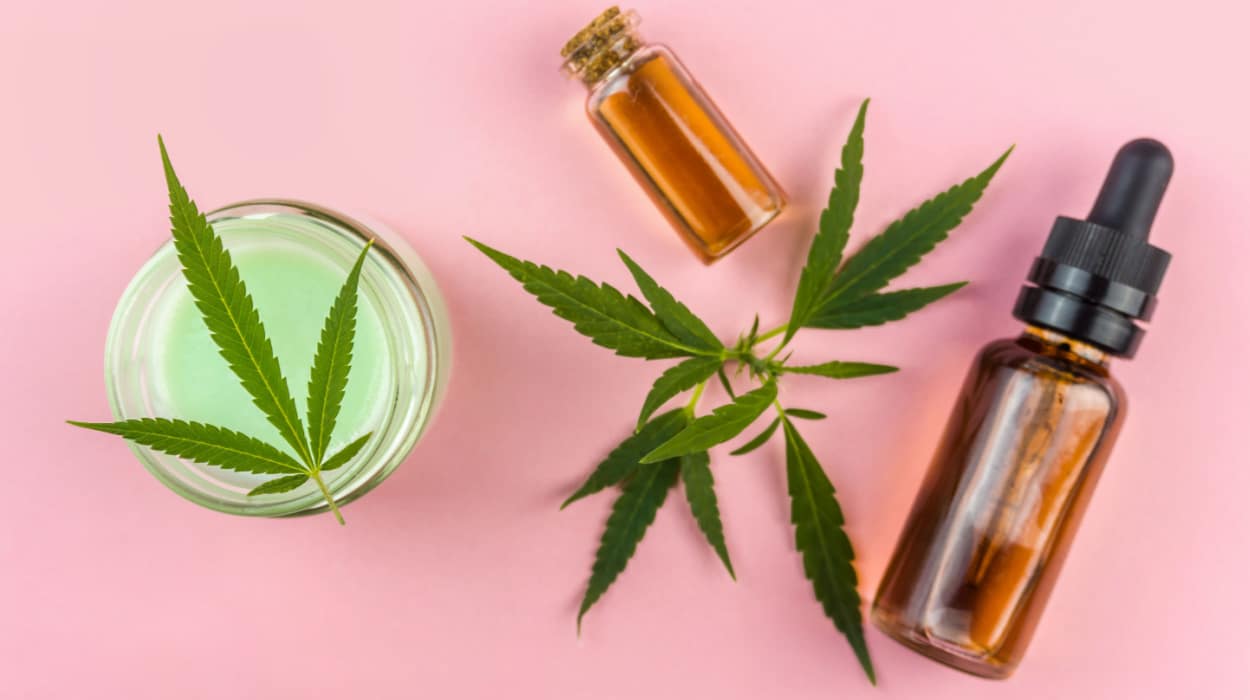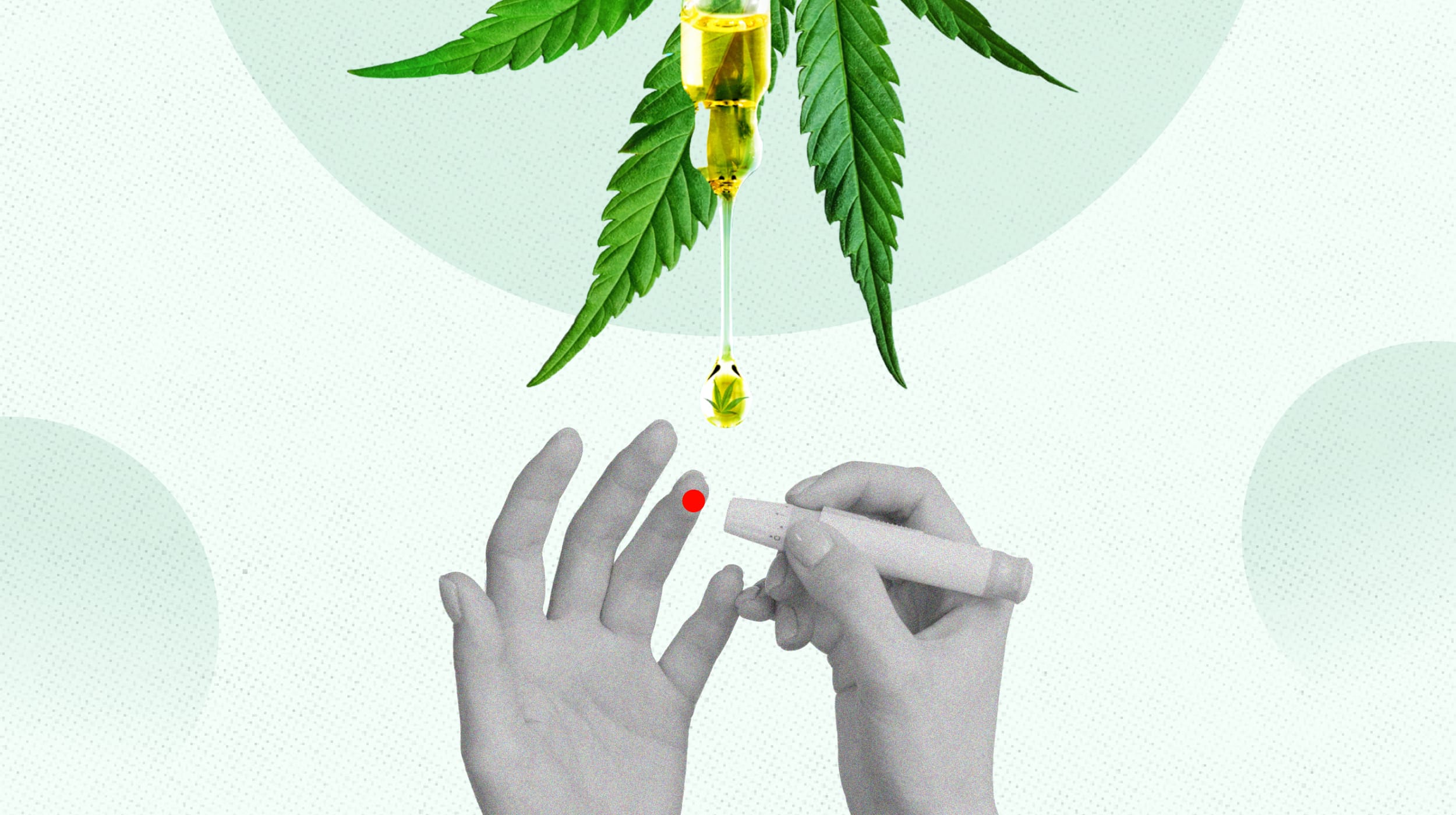Diabetes is a common disease. In this article, we’ll take a look at the new CBD products on the market, and read the research answer to the question: “Does CBD help with diabetes or high blood sugar?”
Diabetes is characterized by either decreased insulin production by the pancreas (Type 1), or resistance to insulin produced (Type 2). Either way, the blood glucose (blood sugar) is very high and can cause medical emergencies and contribute to chronic medical conditions. Type 1 diabetes is usually diagnosed at a younger age; Type 2 is often developed at an older age. There are multiple treatment options for diabetes, including medications and lifestyle modifications.
Can CBD Help With Diabetes?
Despite being a potential experimental medicine, CBD’s effect on diabetes still needs to be further studied. CBD appears to help manage symptoms of diabetes but does not help with the underlying condition.
Does CBD Help With Diabetes?
Research on CBD’s effect on diabetes has not taken off yet. As a potential experimental medicine, it’s still unclear how CBD affects the endocannabinoid system. In case studies on diabetes control, CBD appeared to help manage symptoms of diabetes but did not help with the underlying condition. Some studies have shown that CBD might help with metabolic syndrome, but those were only in mice, not human trials. The American Diabetes Association does not endorse CBD as a diabetes therapy.
The Benefits Of CBD For Diabetics
We’ll be clear here–CBD is not a miracle drug, and healthcare providers do not include it in diabetes treatment or can prevent the development of diabetes. There is no evidence to suggest that CBD oils or other CBD products may help treat diabetes, and there are no Food and Drug Administration-approved products for it.
Obesity And Insulin Resistance
Taking CBD oil or CBD products does not appear to have any effect on obesity, weight, or insulin resistance.
Nerve Pain
Chronically elevated glucose can accumulate around the nerves in the arms and legs. This can cause damage over time, causing pain and numbness. CBD may help manage pain, and could potentially provide relief for neuropathic chronic pain.
Anxiety And Stress Management
Living with diabetes and its side effects, especially neuropathic pain, can be stressful. Stress can also cause your blood glucose to further increase. Using CBD may help with decreasing this stress and anxiety.
Precautions For People With Diabetes Looking To Try CBD

Please understand that diabetes organizations, healthcare professionals, and FDA (Food and Drug Administration) regulations do not support using CBD for people with diabetes. If you have questions about it, please speak with a qualified physician or diabetes educator.
How To Take CBD For Diabetes?
There are multiple formulations of CBD for diabetes, including oral CBD oil and gummies. Again, speak to a healthcare provider before taking them, because there is simply no evidence that CBD works to help diabetes.
About Diabetes
We briefly touched on this, but we’ll explain it in more detail here. Diabetes is a chronic disease where the body’s blood sugar remains high due to a problem with insulin levels. Insulin is a hormone that regulates your metabolism and is triggered by blood glucose levels. After a meal, your blood sugar rises, and insulin is released. Your muscles, fat tissue, and organs detect the insulin and respond by taking up glucose for energy. Insulin response also lowers your energy metabolism and causes your liver to save sugars for future energy reserves.
Without insulin, glucose metabolism is stopped and it remains in the blood. High blood sugars can create many health problems–they can build up and block the blood vessels, leading to stroke or heart disease over time. They can cause chronic diseases and health conditions like high blood pressure, diabetic neuropathy, and diabetic retinopathy. There is currently no cure, but both types of diabetes can be managed with prescription drugs and lifestyle changes.
Type 1 Diabetes
Type 1 Diabetes[1] is when the cells in the pancreas, an organ in the digestive system, do not produce insulin; this is because of an attack by the immune system. As a result, blood glucose is very elevated, and can cause medical emergencies. So, Type 1 Diabetes care requires injection of synthetic insulin and monitoring of blood sugar and food intake.
Type 2 Diabetes
Type 2 Diabetes[2] is a decrease in insulin sensitivity. Your body produces too much insulin in response to prolonged glucose elevation. Over time, your body will not respond to insulin anymore, leading to an increase in glucose concentration.
Synthetic insulin will not work in this case. Diabetes patients with Type 2 must work to improve blood sugar levels, usually through exercise and good dieting. Prescribed medications and dietary supplements help with reducing insulin resistance, decreasing appetite, and decreasing blood sugar. Type 2 diabetes, unlike Type 1, can be inherited, or acquired through lifestyle.
Gestational Diabetes
Gestational diabetes is a special form of diabetes. It occurs during pregnancy–the mother’s blood sugars remain slightly elevated, in order to provide energy for the fetus. While usually milder than Type 1 or Type 2 diabetes, gestational diabetes can still cause high blood pressure and must be monitored throughout the pregnancy.
About CBD

Cannabidiol (CBD) is one of the major compounds in the cannabis sativa plant, commonly known as marijuana. It, along with THC, is the major activator of the endocannabinoid system, a biochemical pathway in the body that’s believed to play a role in pain and the nervous system.
CBD targets the endocannabinoid pathway, but without inducing the “high” of THC. It’s been used as a natural compound in CBD oils and CBD gummies to help with pain relief and anxiety. Research is underway to see how helpful cannabis-derived products and cannabis therapy are for helping with chronic conditions. Meanwhile, several new CBD oils and products have hit the market.
Full-Spectrum CBD
Full-spectrum CBD oil is what the name implies–it is the full range of compounds from the cannabis plant, including CBD, THC, and others. This brings the advantages of CBD and THC and the other alkaloids, but beware that the THC could be enough to cause users to fail drug screenings.
Broad-Spectrum CBD
Broad-spectrum CBD oil is CBD plus the other cannabis compounds without the THC oil. It’s a way for users to appreciate the CBD and lesser active compounds in cannabinoid therapy, without risk of consuming THC.
CBD Isolate
CBD isolate is as the name says. It’s pure CBD oil.
Possible Side Effects Of CBD
CBD may bring some potential health benefits to people with diabetes, but like anything, it may have some side effects and things to consider.
Quality And Potency
CBD can be bought in many different potencies and concentrations. What makes the best CBD oil concentration can depend on your condition, body size, and formulation. It’s best to consult with a healthcare provider on how much CBD is right for you.
Convenience
CBD is convenient–it can be bought at cannabis dispensaries, your local drugstore, and online.
Easy To Use
CBD–whether it’s a CBD oil daily dose or a CBD nightly gummy, is easy to use. It’s a simple addition to your routine or medication list.
Effectiveness
CBD has varying effectiveness. Cannabis use and CBD’s effect on health conditions has not been well-studied, especially for Type 1 and Type 2 Diabetes. People using CBD will report varying effectiveness.
Price
CBD oil and products can vary in their cost, depending on the concentration and formulation. The best CBD oils can be very expensive and are made with organic, sustainable ingredients. Still, as long as it’s quality CBD, the price should not affect the results.
Conclusion
Diabetes is a chronic metabolic condition and must be managed with lifestyle and medication. CBD is a hot product on the market, but it doesn’t appear to have any beneficial effects on managing diabetes or its symptoms.
Frequently Asked Questions
No. CBD has not been demonstrated to prevent, manage, or cure diabetes. No evidence supports cannabidiol lowers the incidence of diabetes.
Research does not support this. The proven ways to help are exercise and a diet with complex carbohydrates and healthy fats. Not CBD.
Research does not show CBD reduced or raised insulin production, in patients with or without diabetes.
 Expert's opinion
Expert's opinion
